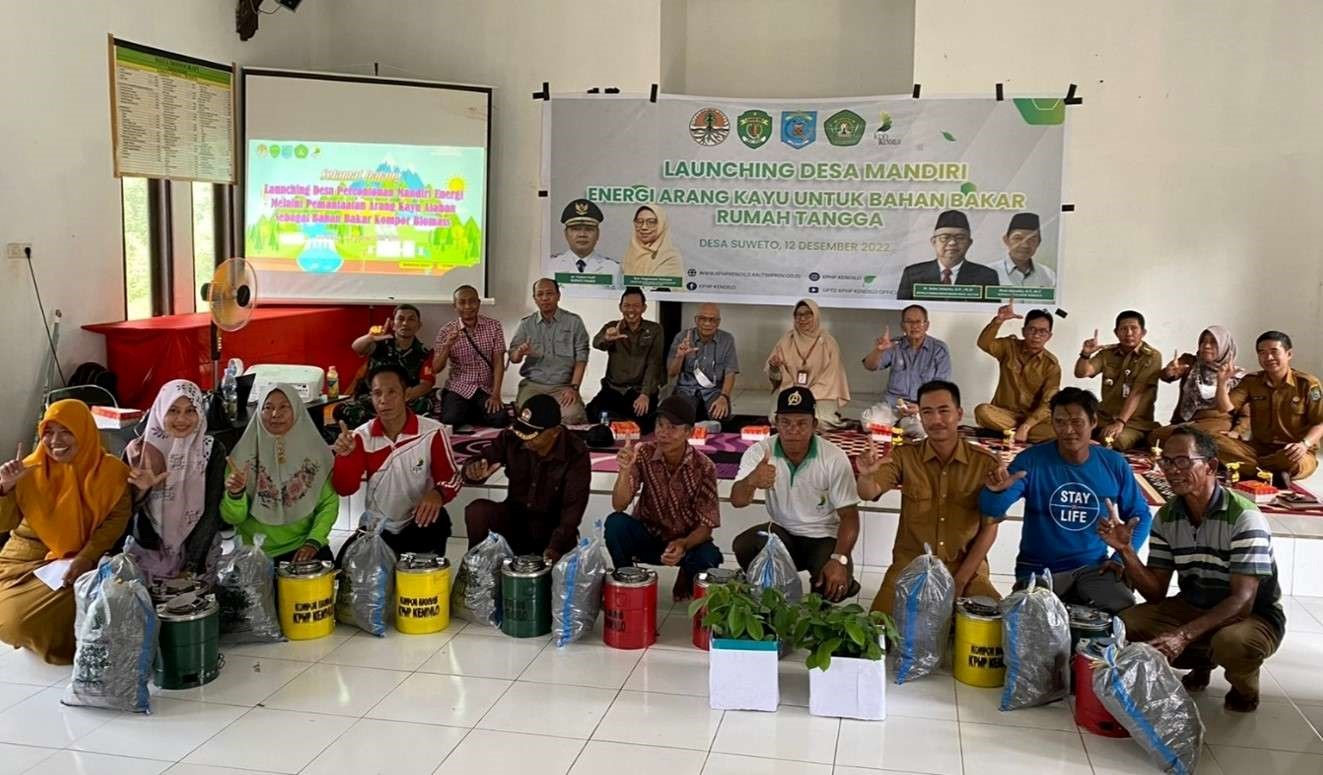
To view examples of the utilization of forest products as an energy source at the site level, the Ministry of National Development Planning/Bappenas, supported by FORCLIME, held a recent field visit to the KPHP Kendilo forest management unit. This field visit took place from 11 - 12 December 2022 in Paser District, East Kalimantan and was led by Dr. Nur Hygiawati Rahayu, S.T., M.Sc., the Director of Forestry and Water Resources Conservation at the Ministry of National Development Planning/Bappenas. One of the Forest Farmers Groups (KTH) being assisted by KPHP Kendilo, which is called KTH Alas Taka, has run a charcoal production house that uses alaban wood (Vitex pinnata) since 2016. Currently, KTH Alas Taka can produce 15 tons of activated charcoal per month. This charcoal is used by the community in the KPHP Kendilo area, specifically within the village of Suweto, as an alternative energy source capable of replacing LPG as a household fuel. To support these activities, Mulawarman University also provided assistance to the community in the form of biomass stoves.
Field visit activities continued with an FGD that addressed the potential development of energy forests and the utilization of NTFPs for forestry development purposes, which was held on 13 December 2022 in Balikpapan. Led by Mrs. Dr. Nur Hygiawati Rahayu, S.T., M.Sc., this FGD was attended by the bioeconomy team, KPHP Kendilo and Mulawarman University. Among the results of the discussion were the need for government support in relation to the development of research and technology facilities, so that scaling up pilots will ultimately result in marketable products. Collaboration with related industry players and identification of partners is also seen as important in terms of developing the bioeconomy. If a new market is created in the downstream industry, then the community, with the help of the KPH, will be willing to plant other types of trees in accordance with demand.
For more information, please contact:
Nurdita Rahmadani, Junior Advisor for Monitoring, Evaluation and Reporting
Pipin Permadi, Senior Advisor and Liaison Officer






